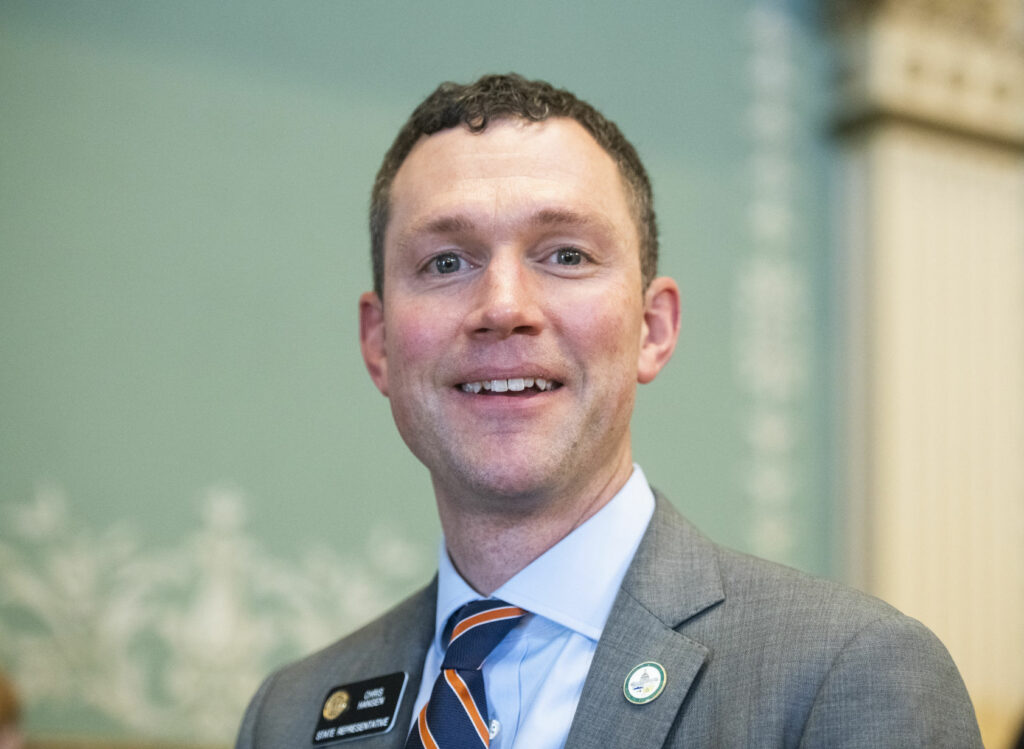OUT WEST ROUNDUP | States rebuke Utah plan to tap river water; COVID-19 fallout hit women hardest

UTAH
States blast plan to tap Colorado River water
Six Western states that rely on the Colorado River to sustain cities and farms rebuked a plan to build an underground pipeline that would transport billions of gallons of water through the desert to southwest Utah.
In a joint letter Sept. 8, water officials from Arizona, California, Colorado, Nevada, New Mexico and Wyoming urged the U.S. government to halt the approval process for the project, which would bring water 140 miles from Lake Powell in northern Arizona to the growing area surrounding St. George, Utah.
If the approval moves forward, state water leaders wrote, “multiyear litigation” would likely be inevitable and could complicate negotiations over the future of the Colorado River, which serves 40 million people but faces threats from persistent drought and climate change that are dwindling the supply of water.
The Lake Powell Pipeline project would divert 86,000 acre-feet of water to Washington County, Utah. The state is entitled to the water under agreements between the states that date back a century, but the project’s critics worry the pipeline could further deplete Lake Powell — one of the two man-made reservoirs where Colorado River water is stored.
Colorado mulls joining massive water conservation project
If water levels in either Lake Powell or the other reservoir — Lake Mead — fall farther, states could be forced to limit the amount of water they can send to growing cities like Phoenix and Las Vegas and farmers throughout the region that help stock supermarkets.
In the letter, state water leaders suggest continuing negotiations between the states rather than lawsuits and ask Interior Secretary David Bernhardt to delay approving the final environmental impact statement.
The states are contending with a drier future as they renegotiate agreements that detail how Colorado River water is doled out.
WYOMING
Survey: COVID-19’s economic impact hit women, single moms
CHEYENNE — The social and economic effects of the COVID-19 pandemic have hit Wyoming women especially hard.
Those are the findings of a recent survey conducted by the Wyoming Survey and Analysis Center, which partnered with the Wyoming Community Foundation and the Wyoming Women’s Foundation. The survey was designed to better quantify how the loss of income and child care options created by the pandemic has burdened women, in particular.
According to the randomly selected survey respondents — one-third of whom were women with children in their household, and one-fifth of whom were single mothers — 17% worried their food would run out before they could afford to buy more, more often than prior to the pandemic.
COVER STORY: STATE OF THE ARTS | It could take government action to revive performing arts
The survey suggests that those longstanding divides have sharpened after the pandemic shut in-person schooling and day care centers, requiring many women to make tough and sudden decisions about work.
After the pandemic began, 30% of single mothers worried about job loss because of child care, whereas 14% of women in a two-adult household felt the same, according to the survey.
Thirty-five percent of single mothers reported that they didn’t always have a safe place to leave their children while they went to work or school; 21% of women in a two-adult households shared that worry.
The survey also revealed another trend: large percentages of women don’t know how to access resources that could help them find food, financial support and mental health resources.
NEBRASKA
No-fault divorce law faces legal challenge
OMAHA — A devoutly Catholic husband who refused to grant his wife a divorce on religious grounds urged Nebraska’s highest court Sept. 3 to overturn the state’s no-fault divorce law in a case that could leave Nebraska as the only state without a law that lets couples end their marriage without assigning blame.
Michael Dycus is challenging a district court judge’s decision to approve the divorce, contending that his wife didn’t give a valid reason why their 33-year marriage failed. In oral arguments before the Nebraska Supreme Court, his attorney argued that the state’s no-fault divorce law violates the state constitution because it doesn’t allow him the same due-process and equal-protection rights that he’s guaranteed in other types of court cases.
Nebraska’s no-fault divorce law, approved in 1972, allows judges to dissolve a marriage if both spouses declare that the marriage is “irretrievably broken,” or if one spouse makes that statement and the other doesn’t deny it.
If one spouse disputes that the marriage is beyond saving, the judge is then required to consider what prompted the divorce filing and the chances that the marriage can be salvaged before issuing a ruling.
State Supreme Court to consider legality of gay marriage preceding legalization
The case before the court is widely viewed as a long shot, but it’s caught the attention of religious liberty groups who argue that judges should have to order counseling or mediation if one spouse requests it.
Fault divorces require one spouse to allege that the other destroyed their marriage through infidelity, abuse or other damaging acts.
NEW MEXICO
Free lunches continue for students
SANTA FE — Funding for summer meal programs for children in New Mexico will be extended for the foreseeable future, state officials said.
The U.S. Department of Agriculture has approved a waiver allowing the food programs to continue for as long as funding lasts for all children in the state, regardless of whether they qualify for income-based programs.
Most of the state’s 89 school districts have no in-person learning, though a few elementary schools have started. But all school districts have continued to offer free meals, delivering them along school routes or creating distribution sites where parents can pick them up.
On the nearly deserted campus of Capshaw High School in Santa Fe, workers on Sept. 9 loaded shopping bags laden with breakfasts and lunches into a yellow school bus.
Q&A: What families should know about Denver Public Schools’ fall plans
The next stop was an apartment complex entrance followed by a trailer park. Parents walk or drive through taking home the bags of chicken sandwiches, cartons of milk, strawberries and other nutritious snacks.
Around 13 million meals have been picked up by families or delivered to them since the start of the coronavirus pandemic, according to the governor’s office.
Hearse believed to have carried Old West lawman at new home
LAS CRUCES — A historic hearse that is believed to have carried the Old West lawman known for killing Billy the Kid to his grave is now part of the New Mexico Farm & Ranch Heritage Museum.
The hearse was the only one available in Las Cruces when Pat Garrett was fatally shot in a dispute over a southern New Mexico ranch. That has created the widespread belief that the horse-drawn wagon delivered Garrett to his final resting place.
Leah Tookey, the museum’s history curator, said Garrett’s family could have put him in the hearse or transported his body in their own wagon.
A review of Colorado place names reveals a checkered past
Still, the hearse likely will draw interest in Garrett, who rose to fame when he was appointed sheriff of Lincoln County in what was then the territory of New Mexico and captured Billy the Kid. After escaping, Garrett tracked down the Kid at Fort Sumner and killed him in 1881.
Garrett died in 1908 and is buried at the Masonic Cemetery in Las Cruces.
The Women’s Improvement Association of Las Cruces owned the only hearse in town from 1894 to 1912 and rented it to local residents for $10 — half of which went to the local livery stable to pay for the horse, driver and feed.
Before that, people had been using an ice wagon to transport the dead.









